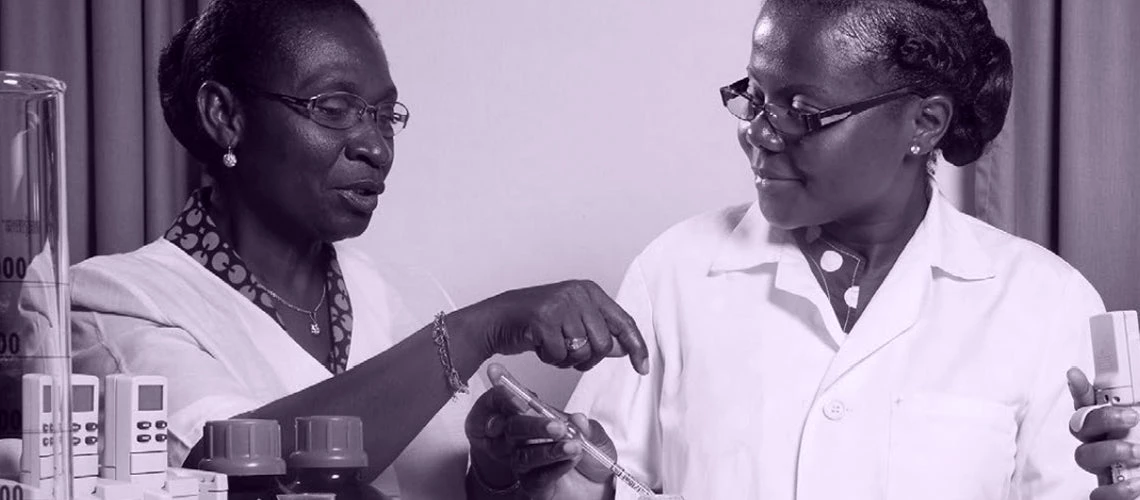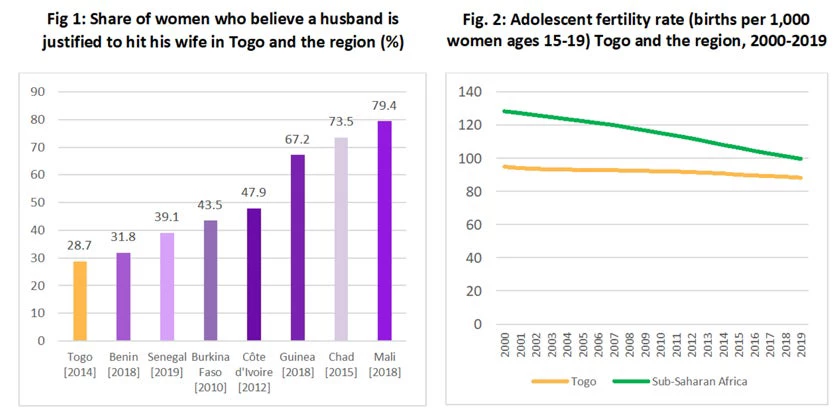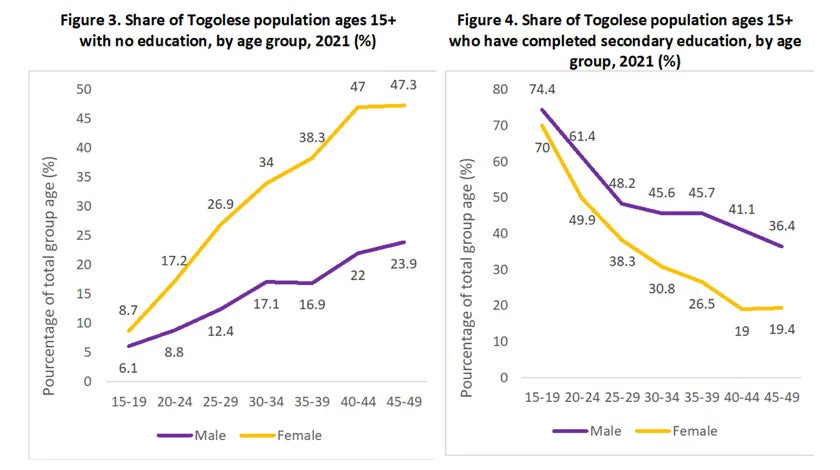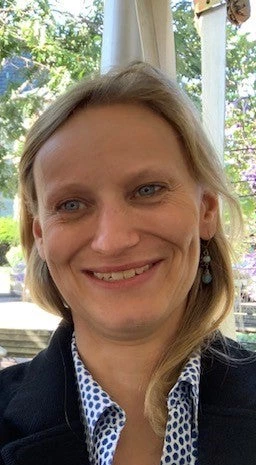 Women scientists in the lab
Women scientists in the lab
What ‘reasons to celebrate’? Quite a few actually
According to the recent World Bank Gender Disparities and Poverty: A Background Paper for the Togo Poverty and Gender Assessment 2022, in many dimensions of gender equality, Togo performs better than its regional peers. Togo has one of the lowest rates of maternal mortality in the region (399 deaths per 100,000 births in 2020), considering the Sub-Saharan African average of 536 (WDI, 2020). Also, the acceptance rate of violence against women among women ages 15–49 (28.7%, Fig.1) is below that in peer countries, including Benin (31.8%), Senegal (39.1%), Burkina Faso (43.5%), Côte d’Ivoire (47.9%), Guinea (67.2%), Chad (73.5%), and Mali (79.4%). Togolese girls are also less likely to than their regional peers to become pregnant during their adolescence (Fig. 2) as indicated in an adolescent fertility rate of 88.3 birth per 1000 women ages 15-19, compared to 99.6 on average in the Sub-Saharan African region.
In addition, Togo has been making rapid progress. Contraceptive use among married women ages 15-49 has nearly doubled between 1988-2018 from 12.1% to 21.5% . In terms of education, the gender gap in the share of the population with no education is significantly smaller among younger cohorts (Fig. 3) and relatedly, younger cohorts are more likely than older generations to have secondary education (Fig. 4) while the gender gap is also smaller for the younger ones.
Togo also has one of the highest rates of women’s political participation in the region: the share of seats in the national parliament held by women increased tremendously from just 1.2% in 1997 to 18.7% in 2020, likely an outcome of the amendments to the Electoral Law of 2013 , requiring that candidate lists to include equal numbers of men and women. Togo has also recently implemented several important legal reforms to secure women’s rights and tackle gender discrimination. Most recently, the amendments of the penal code through the Gender Equality Law strengthens protections against gender-based violence and include revisions to the family code (equalizing rights to divorce and remarry). Relatedly, the Law on protecting learners against sexual violence (December 2022) criminalizes school based GBV, while also defining prevention procedures and victim support measures.
But despite those gains – much more needs to be done
Togolese women participate in the labor market to a much lower extent than men, and most of female employment is informal and vulnerable. Women also appear to be disadvantaged in terms of access to and ownership of land, productive assets, and finance. Adolescent girls and young women continue to have poor chances to complete secondary school and delay early family formation. Although girls outnumber boys in primary school, the gender gap in enrollment favors boys in each subsequent educational level, and the chances of girls to complete secondary school are much lower than those of boys. Moreover, the rates of child marriage and teenage pregnancy, though lower than in most neighboring countries, continue to be very high.
… and efforts are already underway!
The release of the report coincides with the official launch of the World Bank financed Women's Empowerment and the Demographic Dividend in Sub-Saharan Africa Plus Project (SWEDD+ project). This new regional project is expected to further contribute to Togo’s efforts in reaching its gender equality goals. It directly aims to tackle some of the critical issues identified in the report: improve girls' and women's access to learning, economic opportunities, and the use of health services, as well as to strengthen Togo's institutional capacity for gender equality. It is expected that the project will directly benefit over 105,000 vulnerable Togolese girls and women through interventions at community level, including for instance tuition support, school canteens, services for survivors of Gender Based Violence (GBV), and jobs training. Many more women, men, children, and diverse stakeholders like religious and traditional leaders will benefit from the project through additional activities.
The gender report also provided an analytical basis for World Bank support to the country to enact policy reforms for greater gender equity. This is being done through the Bank’s Development Policy Financing series, which supported the above mentioned law to protect learners from sexual violence and also new standards and guidelines to support survivors of GBV.
Hence, let’s continue to celebrate what’s been achieved and the first steps on the way ahead of us on the way to empowering women and girls in Togo. The agenda is ambitious but so are the steps already taken.





Join the Conversation